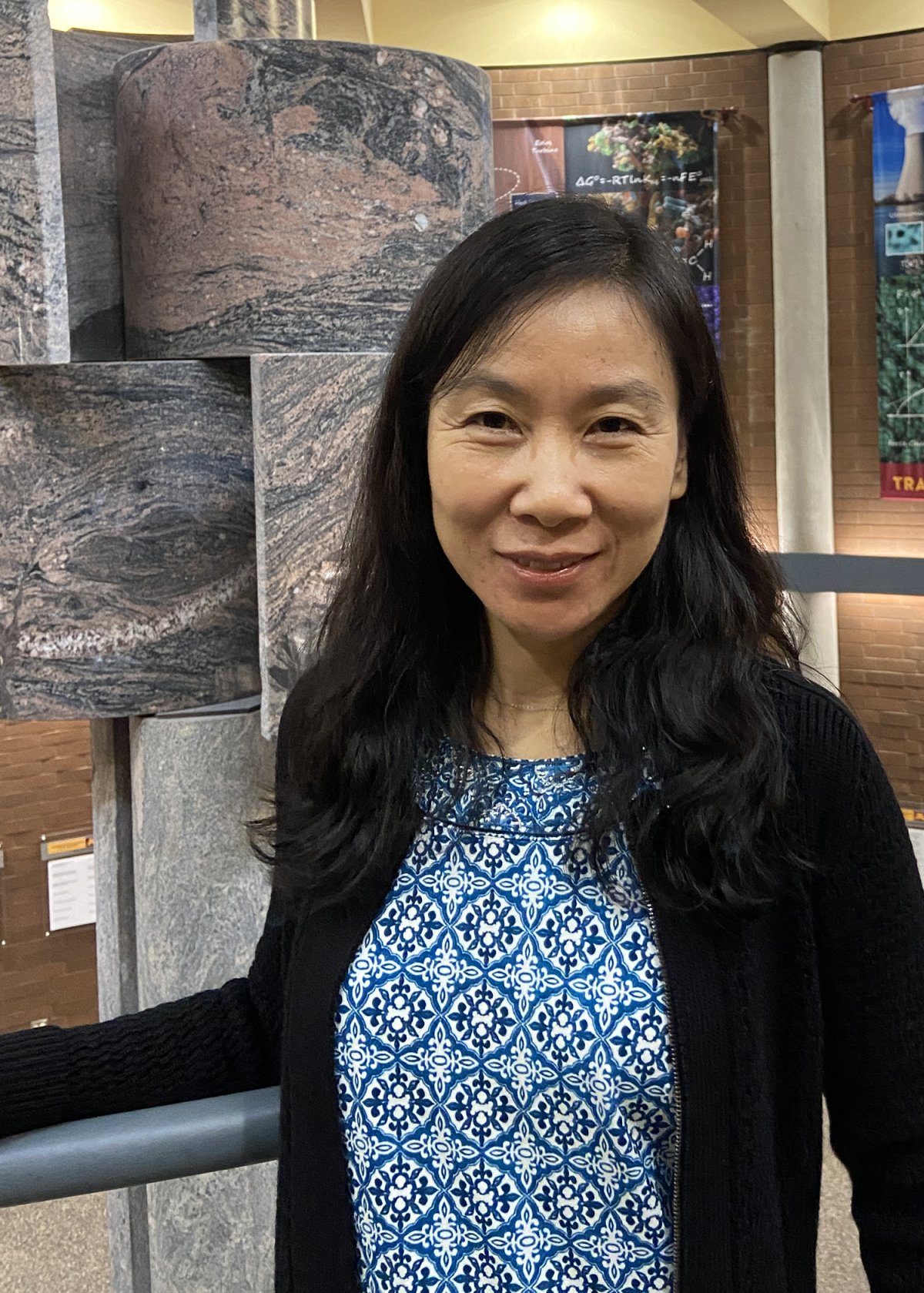Robust CAV Coordinated In-Vehicle Routing
Robust CAV Coordinated In-Vehicle Routing leveraging game theories, machine learning, and distributed optimization
A Warren Distinguished Lecture with Lili Du, Civil and Coastal Engineering, University of Florida
Abstract. In recent years, wireless communication, onboard computation facilities (personal digital assistants, smartphones, etc.), and advanced sensor techniques (loop detector, camera, GPS-based vehicle probe, etc.) have enabled a well-connected and data-rich transportation system, i.e., connected vehicle system (CVS). Even though the CVS has been granted a great potential to smartly route travelers (or CVs) to avoid traffic congestion, scholars have recognized that as the majority of vehicles become CVs, current real-time information provision and routing methods may worsen traffic congestion, given each CV still selfishly and independently chooses its own shortest path (independent routing). This inherent deficiency of the current routing methods is rooted in the inconsistency between system performance and individual vehicles' route choice behavior. By viewing this, our studies have introduced a novel Coordinated In-Vehicle Routing Mechanism (CRM), which used various game theories to coordinate CVs' routing decisions en route to address the overreaction phenomenon and the inability to control system performance. While the CRM was shown to outperform independent routing methods with respect to system performance, it was not designed to ensure a specific level of system performance. To boost its performance, we further investigated information perturbation aided CRM (IP-CRM) and correlated game based CRM (CeRM). They strategically alter traffic information provision (travel time or route choice preferences) to CVs for mitigating network/system congestion. Furthermore, our studies leveraged multidisciplinary methods, including computer simulation, machine learning, distributed optimization, and gradient coding schemes, to explore optimal information perturbation schemes, suggest optimal route choice preferences, address scalability, and improve the robustness of the CRM to communication failures. Numerical experiments built upon the Sioux Falls network validated and confirmed the merits of our approaches.
Speaker. Lili Du is a Professor in the Civil and Coastal Engineering Department, University of Florida. She received her Ph.D. degree in Decision Sciences and Engineering Systems with a minor in Operations Research and Statistics from Rensselaer Polytechnic Institute in 2008, her MS degree in Industrial Engineering from Tsinghua University in 2003, and her BS degree in Mechanical Engineering from Xi'an Jiaotong University, China in 1998. Dr. Du's research is characterized by integrating operations research, network modeling, game theory, control theory, AI, and statistical methods into traffic flow analysis, transportation system analysis, urban planning, and network modeling. Her current research mainly focuses on the impacts of connected and/or autonomous vehicles and electric vehicles, mobility on demand, smart curb, network resilience, and traffic flow analysis. Dr. Du's research has been published in Transportation Research Part B, Part C, and Part D, IEEE Transactions on ITS, Networks, and Spatial Economics. Her research has been funded by NSF, State DOTs, STRIDE UTC, FMRI UTC, and Toyota InfoTechnology Center. Dr. Du was a recipient of the NSF CAREER award in 2016 and NRC Research Associate award at the Federal Highway Administration/Turner-Fairbank Highway Research Center in 2023. Her project, "Driverless City" won the First Nayar Prize at IIT. She is the founding and active chair of both TRB AEP40-4 subcommittee on Emerging Technologies in Network Modeling and ASCE-T&DI Artificial Intelligence in Transportation Committee. She serves as an editor for Transportation Research Part B: Methodological, an associate editor for IEEE Transactions on Intelligent Transportation Systems, Journal of Intelligent Transportation Systems, and is a member of the editorial advisory board for Transportation Research Part C: Emerging Technologies.
